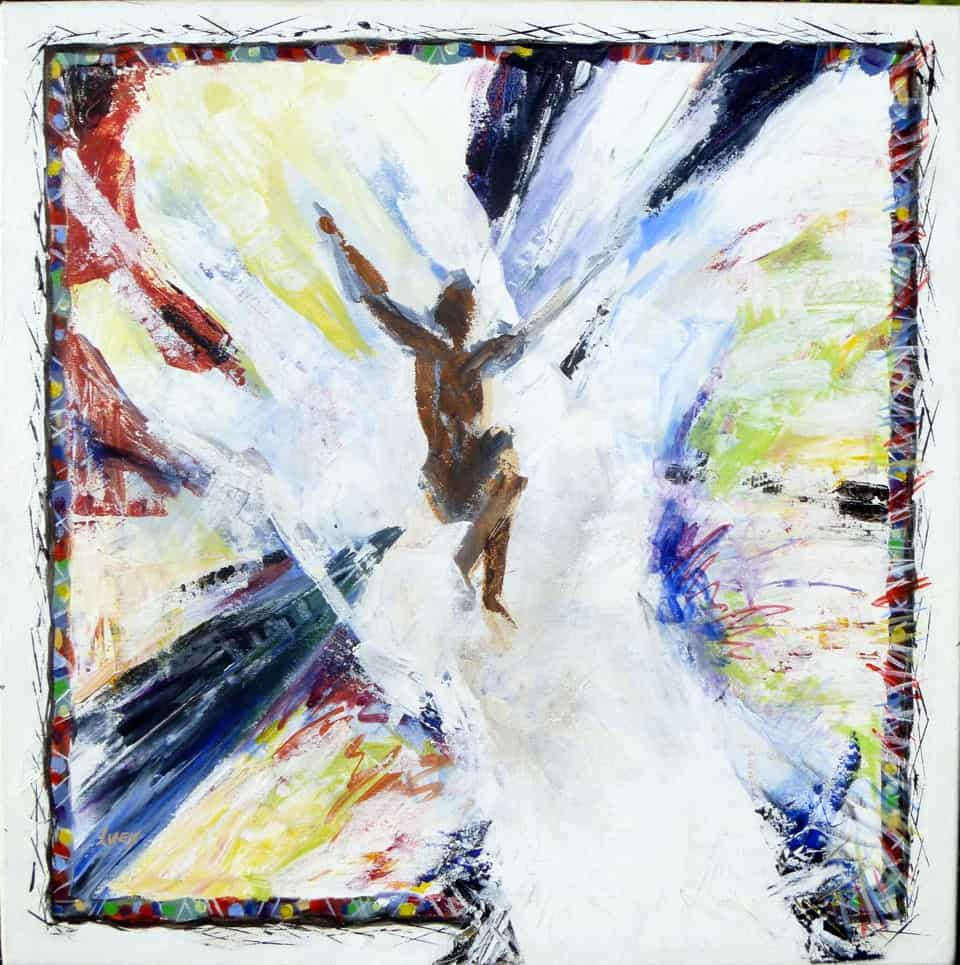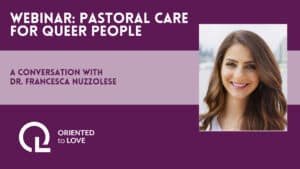
Going into the Oriented to Love dialogue felt like being asked to walk into a building filled with poison gas. I knew the depth of the disconnection. I knew the hurt that blooms out from the debate. I was having trouble envisioning a satisfying result.
As a lesbian, I knew that I would be misunderstood by those who are uncomfortable with my homosexuality. I knew we were showing up to share words, but I knew that words were the very things creating and extending our isolation, reinforcing our inability to imagine reconciliation.
I had some inkling of the grace and forgiveness that my faith would require I extend to others in attendance. I seriously doubted I was equal to the task.
I wanted to do anything except sit down in the middle of this huge and awful knot of misunderstanding. I thought words were all we would have.
I was wrong. Completely and utterly wrong.
Resolving this misunderstanding is not accomplished with words. It is not accomplished with magnificent speeches or the posting of compelling content on the web.
What I learned at the Oriented to Love dialogue is that people of faith are called to resolve this misunderstanding in a different way. With our hearts. Through grace. By surrendering our minds to the experience of the mysterious and miraculous.
I’m talking about the thing that feels impossible. I’m talking about saying, “I don’t agree with you, but I fully love and support you anyway.” And don’t be confused. Both sides must be able to say this. I must be able to say to someone unwilling to admit my equality, “I don’t agree with you, but I fully love and support you.”
This happens not though words but through presence, through tears, through telling the truth in love, through opening our arms to someone we are afraid of, through changing the entire focus of our interaction from words to feelings.
Nothing important at Oriented to Love happened because of words. Words trample over God’s stillness, the vessel of love.
At Oriented to Love the words were necessary only to the extent that they illuminated the feelings we carry in our hearts, in our bodies. Bodies are for love. The really important stuff always gets accomplished with bodies.
Believe me, there were quite a few words spoken, and many were actually heard. But the real experience was found in the way the words were said. In the way he started rocking in his seat when he hooked into what he knew was possible in his life. In the way the one tear slid down her cheek. In the way we both lost ourselves in the music and wept into the sheer perfection of that moment. In the sufficiency of grace when we believed that the lines might indeed cease to exist. In the long intake of breath before he undertook the most difficult explanation. In the way her voice broke when she said what felt too shameful to say.
That was the real experience. That was what makes me cry right now when I think about my last look at all of us still sitting in our chairs, knowing in the next moment it would become a memory. Knowing what we had allowed in, knowing what we had to leave behind to do so.
Look, the grace that fixes this has nothing to do with words. The love and redemption Jesus embodied has nothing to do with words. As a matter of fact, if you look at how the church is being torn apart, if you look at how some Christians are tearing other Christians apart, if you set aside what you think is going on and really look, you will find at the root of the divisions, at the root of much of the brokenness, is a big fat pile of divisive and ill-advised words.
This is not easy work. It’s not easy for the gay people, it’s not easy for the straight people. One group’s hurt and fear does not trump the hurt and fear of the other group.
But this is God’s work. Learning to feel, portray, and surrender to love. Learning the emotional language of Spirit, and not allowing divisive written and spoken words to drown that out.
Allowing grace to suffice.
Building the mysterious and miraculous foundation of God’s church in the vast waters of love.
That’s the unbelievable bottom line of the Oriented to Love experience.



2 Responses
Marg, it is so uplifting to read your faithful heart here and remember you so clearly, from our early years- engaging, observing, and learning from life and truth. I am son pleased to have this opportunity! In loving grace, enthusiastically, jan
Ah Jan, thanks for taking the time to read this and share your comment with me. There’s still so much to engage with, observe and learn about, isn’t there? Sending much love to you. – marg